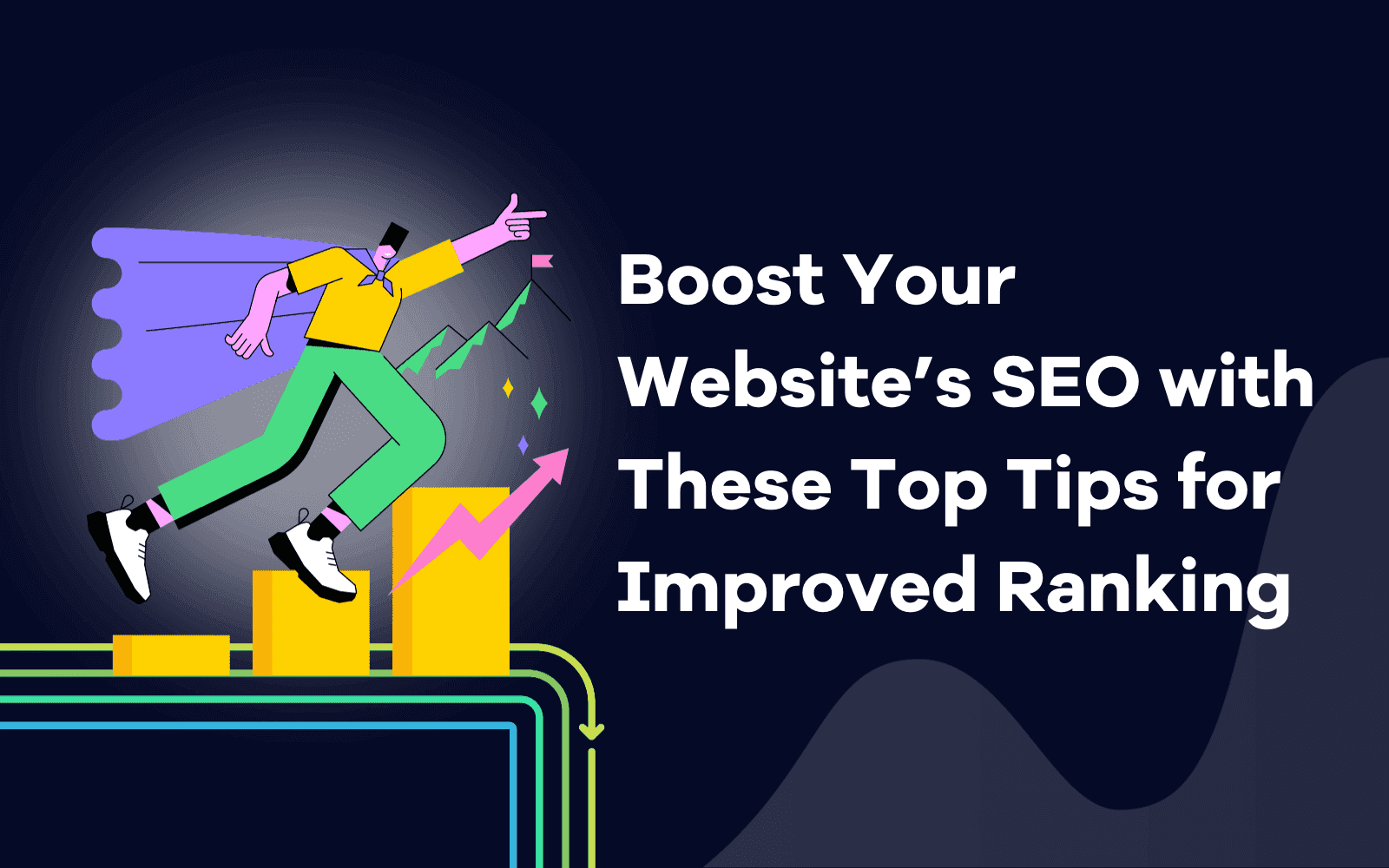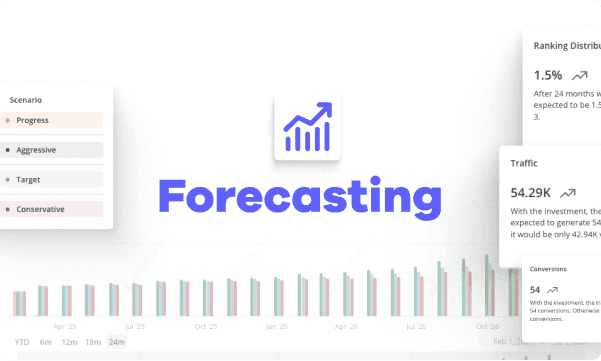Boost Your Website’s SEO with These Top Tips for Improved Ranking
Last updated on Wednesday, September 13, 2023

In today's digital landscape, establishing a robust online presence is vital for both businesses and individuals. Search Engine Optimization (SEO) plays a pivotal role in achieving a successful online identity. Optimizing your website for search engines like Google, Bing, and Yahoo is the cornerstone of effective SEO. By achieving higher organic search rankings, your website can attract more visitors, generate leads, boost sales, and enhance brand recognition.
Step-by-Step Guide: Enhance Your Online Presence and Drive Traffic
Building a brand presence extends beyond just having a website; it involves adopting a comprehensive Omni channel strategy. This approach is key to creating a strong online identity, reaching new customers, and driving sales revenue. Below, you'll find step-by-step instructions to bolster your online presence and attract valuable traffic.
Conduct a Comprehensive Website Audit: Before embarking on any optimization efforts, performing a thorough website audit is imperative. Identify technical issues such as broken links, slow loading times, and crawl errors. Addressing these issues lays a solid foundation for your SEO endeavours.
Understand Your Target Audience and Niche: Gain insights into your target audience's preferences and needs, align your content and offerings accordingly. Focusing on a specific niche helps you stand out and attract relevant traffic.
Analyse Competitors' Strategies: Evaluate your competitors' websites and SEO tactics to pinpoint their strengths and weaknesses. This analysis offers opportunities to outperform them in search rankings.

Unearth High-Traffic Keywords for Your Niche: Building your brand entails more than just setting up a website; effective keyword research is the linchpin of a successful SEO plan. High-traffic keywords represent commonly used search phrases that people employ to find information about your industry or company. Tailor your content around these keywords to align with your audience's interests. To identify relevant keywords and assess their search volumes and competition levels, leverage tools like Google Keyword Planner, Ahrefs, and SEMrush. Remember, strategic integration of these keywords into your website's content, meta tags, headings, and URLs is vital to avoid keyword stuffing and maintain a natural flow.
Leverage Keyword Research Tools: Leverage keyword research tools such as Google Keyword Planner, SEMrush, or Ahrefs to discover pertinent keywords and their corresponding search volumes. Strive for a balance between search volume and competition when selecting keywords.
Harness the Power of Long-Tail Keywords: Prioritize long-tail keywords, which are longer and more specific phrases. Despite lower search volumes, they often lead to higher conversion rates due to their ability to attract qualified traffic.
Prioritize User Engagement with Your Content
Compelling content lies at the heart of on-page SEO, attracting and retaining visitors to your website. Search engines consider user engagement metrics—like time spent on the site, bounce rate, and social shares—as indicators of content relevance and usefulness. To maximize engagement:
Diversify Content Types: Cater to varied preferences and learning styles by creating diverse content types such as blog posts, articles, info graphics, videos, and podcasts. Make sure your content is informative, entertaining, and shareable to stimulate user interaction and social media sharing.
Craft Credible, High-Quality Backlinks for Authority
Backlinks, or inbound links from external websites, play a pivotal role in establishing your website's authority. Search engines interpret backlinks as endorsements from other sites, signifying the value and reliability of your content. However, the quality and relevance of backlinks are paramount. Focus on:
Earning Link-Worthy Content: Produce high-quality content that other websites naturally want to link to. This could include original research, valuable resources, or unique insights.
Engage in Guest Posting: Contribute guest posts to reputable websites within your industry. Guest posting enables you to reach new audiences and build valuable backlinks.
Initiate Link Outreach: Reach out to pertinent websites and bloggers to request backlinks. Personalized and targeted outreach is more likely to yield positive results.
Monitor Your Backlink Profile: Regularly assess your backlink profile to identify and address any toxic or low-quality backlink
Enhance User Experience (UX) for Optimal Results
User experience (UX) significantly influences SEO rankings. Search engines aim to deliver the best possible results to users, making a positive UX crucial for ranking success. Focus on these UX elements:
Ensure Mobile-Friendliness: Make sure your website is mobile-friendly and responsive. Given the majority of internet users access the web via mobile devices, Google prioritizes mobile-friendly websites in search results.

Optimize Page Speed: Enhance your website's loading speed by compressing images, using browser caching, and leveraging Content Delivery Networks (CDNs).
Design Intuitive Navigation: Create a website with clear and intuitive navigation, simplifying the user journey and helping them find what they're seeking.
Prioritize Readability: Use legible fonts, appropriate font sizes, and break up content into manageable sections for improved readability.
Boost Visibility and Achieve Organic Growth
While SEO efforts require time to yield results, there are additional strategies to enhance your website's visibility and expedite organic growth
Leverage Social Media Promotion: Utilize social media platforms to promote your content, engage with your audience, and drive more traffic to your website.

Optimize for Local SEO: If you have a physical presence or target a specific location, optimize your website for local search. Claim and optimize your Google My Business listing and incorporate local keywords.
Regularly Monitor and Analyse: Employ tools like Google Analytics and Google Search Console to continually monitor your website's performance.Analyze the data to identify areas for improvement and growth opportunities.
In Conclusion
Elevating your website's SEO is an ongoing journey that demands commitment and consistent effort. By identifying high-traffic keywords, mastering on-page SEO techniques, engaging your audience with compelling content, cultivating authoritative backlinks, enhancing site UX, and amplifying visibility, you can elevate your website's search engine ranking and foster organic growth. Remember, SEO is not a one-time task but a continuous pursuit to stay ahead of competitors and establish a robust online presence in your niche. Begin implementing these top SEO tips today and witness your website soar to new heights.

Article by:
Sunny Popli
Entrepreneur
Sunny Popli is the owner of SPOPLI Web Development & Services. He loves to learn and grow. His key interest areas are to learn and implement the latest & impactful ideas in the field of digital marketing.


